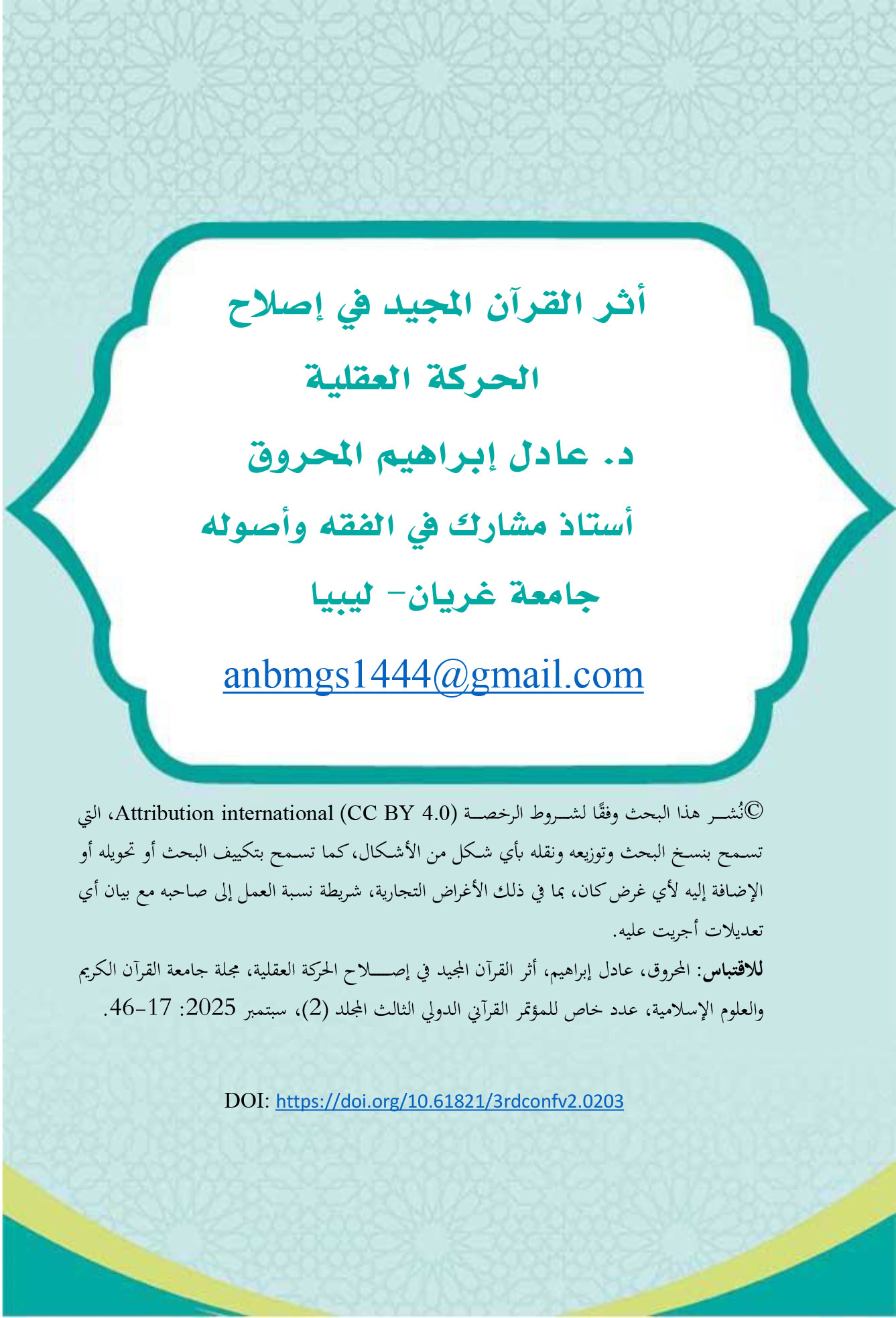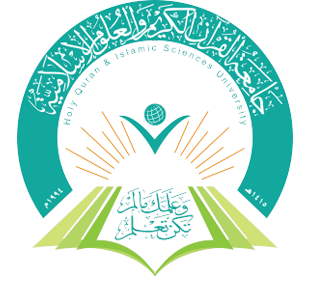أثر القرآن المجيد في إصلاح الحركة العقلية
DOI:
https://doi.org/10.61821/3rdconfv2.0203الكلمات المفتاحية:
القرآن، الإصلاح، العقلالملخص
إن تبجيل القرآن المجيد للعقل يثبت أن العلاقة بين النصوص القرآنية الإلهية والمعارف العقلية البشرية هي توافق وتلازم، وهداية وبيان، ولا يستغني أحدهما عن الآخر، فكلاهما وسيلة من وسائل الكشف عن الحقائق؛ لذا فإن هذا البحث يتغيا الكشف عن حركة العقل وإصلاحها من خلال الآيات القرآنية الداعية إلى إعمال العقل والفهم؛ ذلك أن الله تعالى لم يمدح كل العقول وإنما أثنى على التي تلبست بالفهم، إذ هو من العوامل المهمة التي أعانت الحركة العقلية على سديد النظر وسليم الاستنباط؛ حتى تصل إلى أرفع مستويات المعرفة والعلم، والرشاد والهداية التي ينبني عليها الثواب والعقاب؛ بل تبلغ بصاحبها أعلى درجات النفع وهو التوحيد. انتهى البحث إلى جملة من النتائج أهمها: احتفاء القرآن المجيد ببناء المنظومة الفكرية وجعل الفكر وإنعاشه أحد مقاصد القرآن العزيز التي يجب رعايتها وإقامتها والعناية بها ثم البناء العقلي في القرآن المجيد لم يكن محصورًا في جانب معيّن من جوانب الحياة، وإنما امتد إلى حقول المعارف والعلوم الدينية والدنيوية على حد سواء. أوجب القرآن حسن توظيف العقل، وذمّ مَن عطّله ولم يستخدمه، أو لم يُحسِن استخدامه؛ فاستخدمه في غير موضعه، أو قصره في حدود ضيّقة، يُعدّ حجرًا عليه، وشلًّا لحركته. حارب القرآن المجيد مثبطات العقل، وقتلها في مهدها قبل ظهورها واستفحالها، وتحصين عقول الأفراد من وسائلها المؤدية إليها.
التنزيلات

التنزيلات
منشور
إصدار
القسم
الرخصة
الحقوق الفكرية (c) 2025 مجلة جامعة القرآن الكريم والعلوم الاسلامية

هذا العمل مرخص بموجب Creative Commons Attribution 4.0 International License.
©نُشر هذا البحث وفقًا لشروط الرخصة (CC BY 4.0) Attribution international، التي تسمح بنسخ البحث وتوزيعه ونقله بأي شكل من الأشكال، كما تسمح بتكييف البحث أو تحويله أو الإضافة إليه لأي غرض كان، بما في ذلك الأغراض التجارية، شريطة نسبة العمل إلى صاحبه مع بيان أي تعديلات أجريت عليه












